Today Current Affairs: 18th March 2021 for UPSC IAS exams, State PSC exams, SSC CGL, State SSC, RRB, Railways, Banking Exam & IBPS, etc
Table of Contents
First Virtual Trade Fair (VTF): By APEDA:
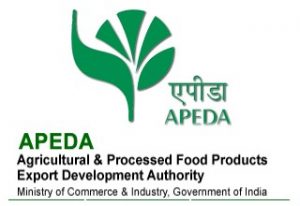
The First Virtual Trade Fair (VTF) organized by APEDA to boost the export potential of India’s agricultural and processed food products during the COVID19 pandemic drew a huge response from participants, exporters, and buyers from other countries.
- The VTF was organized during March 10-12, 2021.
- The fair with the theme ‘India Rice and Agro Commodity’, focussed on showcasing the export potential of various agricultural commodities.
- Because of COVID19 related restrictions on physical travel and trade, APEDA has initiated the concept of VTF for sustaining India’s agricultural and processed food products exports and also exploring new markets for expanding export footprints.
- Agricultural and Processed Food Products Export Development Authority (APEDA) is an Apex-Export Trade Promotion Active government body set up by the Ministry of Commerce and Industry.
- It was formed in 1986 under the Agriculture and Processed Food Products Export Development Authority Act, 1985.
Central Motor Vehicles (Fifth Amendment) Rules, 2021:
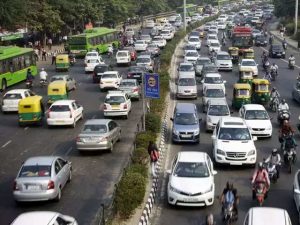
As per the rules:
- Automakers may face fines of up to ₹1 crore from April 1 for defects in vehicles they fail to voluntarily flag.
- A recall of more than six lakh two-wheelers, one lakh-plus four-wheeler, and more than three lakh three-wheelers and quadricycles would attract a penalty of up to ₹1 crore.
- For recalling up to 6,000 two-wheelers, a manufacturer would have to pay up to ₹10 lakh.
- For two-wheelers, with annual sales of up to 3,000 units, the government would order a mandatory recall if 20% of vehicle owners report an identical problem.
- For those with up to 6,000 units in yearly sales, there would be a recall if the complaints equal 11% to 30% of total sales.
- The threshold for passenger buses and trucks is 3% of annual sales.
UDAN 4.1:

On the commencement of the ‘Azadi Ka Amrit Mahotsav (India@75)’, the Ministry of Civil Aviation (MoCA) has proposed about 392 routes under UDAN 4.1 bidding process.
About UDAN 4.1:
- The UDAN 4.1 focuses on connecting smaller airports, along with special helicopter and seaplane routes.
- Some new routes have been proposed under the Sagarmala Seaplane services
- Sagarmala Seaplane Services is an ambitious project under the Ministry of Ports, Shipping and Waterways with potential airline operators.
- One such seaplane service is already in operation between Kevadia and Sabarmati Riverfront in Ahmedabad, which was started in October 2020.
About UDAN Scheme:
- Ude Desh ka Aam Nagrik (UDAN) was launched as a regional connectivity scheme under the Ministry of Civil Aviation in 2016.
- It is an innovative scheme to develop the regional aviation market.
- The objective of the scheme is to create affordable yet economically viable and profitable flights on regional routes so that flying becomes affordable to the common man even in small towns.
- The scheme envisages providing connectivity to un-served and underserved airports of the country through the revival of existing airstrips and airports. The scheme is operational for a period of 10 years.
- Under-served airports are those which do not have more than one flight a day, while unserved airports are those where there are no operations.
- Financial incentives from the Centre, state governments, and airport operators are extended to selected airlines to encourage operations from unserved and under-served airports and keep airfares affordable.
- To date, 325 routes and 56 airports including 5 heliports and 2 water aerodromes have been operationalized under the scheme.
India-Brazil-South Africa (IBSA) Women’s Forum Meeting:
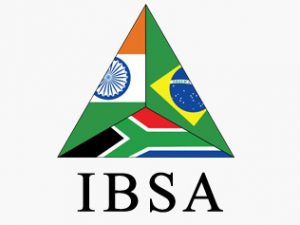
The Sixth India-Brazil-South Africa (IBSA) Women’s Forum meeting was held virtually.
- India is the current chair of the IBSA Dialogue Forum.
Highlights from the Meeting:
Recalled that the Year 2020 marked-
- The 25th anniversary of the Beijing Declaration and Platform for Action (BDFA): The 1995 Beijing Platform for Action flagged 12 key areas where urgent action was needed to ensure greater equality and opportunities for women and men, girls and boys. It also laid out concrete ways for countries to bring about change.
- The 5th anniversary of the adoption of the 2030 Agenda for Sustainable development & Sustainable Development Goals (SDG): Goal 5 aims to eliminate all forms of discrimination and violence against women in the public and private sphere.
- The 20th anniversary of UNSC RESOLUTION 1325 on women, peace, and security.
- A Decade since UN WOMEN was established: UN Women is the United Nations (UN) organization dedicated to gender equality and the empowerment of women. It was established in 2010.
- Lauded the efforts of the Government of India in helping out other countries to overcome the challenges posed by the Covid-19 pandemic by providing vaccines, masks, sanitizers, PPE Kits, etc.
Global Wage Report 2020-21:

The ILO report titled ‘Global Wage Report 2020-21: Wages and minimum wages in the time of COVID-19’ was recently released.
- The Report inter-alia, comments on various issues including on Indian workers having low average wages, longer hours as well as that the workers in Asia and the Pacific enjoyed the highest real wage growth among all regions over the period 2006–19.
- Further, while comparing average wage, the report has taken into account the National Floor Level Minimum Wage which is Rs.176/- per day. However, actual wages are far higher.
- If the median of the minimum wages in different states is drawn, it would be Rs.269/- per day in the country.
- The Code on Wages, 2019 which has been notified on 8th August, 2019 universalises and creates a statutory right of minimum wages for all workers whether in organized or unorganised sector.
- A new concept of statutory floor wage has also been introduced in the Code on Wages.
- The Code also provides that the minimum wages are to be ordinarily reviewed and revised by the appropriate Governments in intervals not exceeding five years.
Mines And Minerals Amendment Bill, 2021 Introduced In Lok Sabha:

The Bill amends the Mines and Minerals (Development and Regulation) Act, 1957.
Highlights of the Bill:
- Removal of restriction on end-use of minerals: The Bill provides that no mine will be reserved for particular end-use.
- Sale of minerals by captive mines: The Bill provides that captive mines (other than atomic minerals) may sell up to 50% of their annual mineral production in the open market after meeting their own needs.
- The central government may increase this threshold through a notification.
- Auction by the central government in certain cases: The Bill empowers the central government to specify a time period for completion of the auction process in consultation with the state government.
- If the state government is unable to complete the auction process within this period, the auctions may be conducted by the central government.
- Transfer of statutory clearances: The Bill provides that transferred statutory clearances will be valid throughout the lease period of the new lessee.
- Allocation of mines with expired leases: The Bill says that mines (other than coal, lignite, and atomic minerals), whose lease has expired, may be allocated to a government company in certain cases. The state government may grant a lease for such a mine to a government company for a period of up to 10 years or until the selection of a new lessee, whichever is earlier.
Amici Curiae:

Solicitor General Tushar Mehta made a strong appeal to the Supreme Court to frame guidelines to rein in lawyers appointed as the court’s amici curiae in various cases, especially sensitive ones.
- An amicus curiae (literally, “friend of the court”; plural: amici curiae) is someone who is not a party to a case who assists a court by offering information, expertise, or insight that has a bearing on the issues in the case.
- The decision on whether to consider an amicus brief lies within the discretion of the court.
- The amicus curiae figure originates in Roman law. Starting in the 9th century, it was incorporated into English law, and it was later extended to most common law systems.
The Appropriation Bill: Cleared By Lok Sabha:

The Lok Sabha has cleared the Appropriation Bill, allowing the Central government to draw funds from the Consolidated Fund of India for its operational requirements and implementation of various programs.
- The Bill was passed after Speaker Om Birla put it through guillotine, a legislative mechanism to approve the fast-tracking of the passage of outstanding demands for grants without discussion.
- Appropriation Bill is a money bill that allows the government to withdraw funds from the Consolidated Fund of India to meet its expenses during the course of a financial year.
- As per article 114 of the Constitution, the government can withdraw money from the Consolidated Fund only after receiving approval from Parliament.
- To put it simply, the Finance Bill contains provisions on financing the expenditure of the government, and the Appropriation Bill specifies the quantum and purpose for withdrawing money.
- The government introduces the Appropriation Bill in the lower house of Parliament after discussions on Budget proposals and Voting on Demand for Grants.
- The Appropriation Bill is first passed by the Lok Sabha and then sent to the Rajya Sabha.
- The Rajya Sabha has the power to recommend any amendments to this Bill. However, it is the prerogative of the Lok Sabha to either accept or reject the recommendations made by the upper house of Parliament.
- The unique feature of the Appropriation Bill is its automatic repeal clause, whereby the Act gets repealed by itself after it meets its statutory purpose.
Act East Policy:
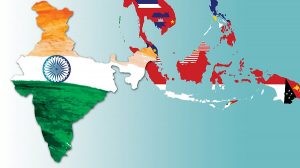
The Union Minister of State Development of North Eastern Region (DoNER) said that connectivity is an important element of Act East Policy.
- The ‘Act East Policy’ announced in November 2014 is the upgrade of the “Look East Policy”.
- It is a diplomatic initiative to promote economic, strategic, and cultural relations with the vast Asia-Pacific region at different levels.
- It involves intensive and continuous engagement with Southeast Asian countries in the field of connectivity, trade, culture, defense, and people-to-people-contact at bilateral, regional, and multilateral levels.
- Aim: To promote economic cooperation, cultural ties, and developing a strategic relationship with countries in the Indo-pacific region with a proactive and pragmatic approach and thereby improving the economic development of the North Eastern Region (NER) which is a gateway to Southeast Asia Region.
Look East Policy:
- In order to recover from the loss of the strategic partner -USSR (end of the Cold war 1991), India sought to build up a relationship with the USA and allies of the USA in Southeast Asia.
- In this pursuit, former Prime minister of India P V Narasimha Rao launched Look East policy in 1992, to give a strategic push to India’s engagement with the South-East Asia region, to bolster its standing as a regional power and a counterweight to the strategic influence of the People’s Republic of China.
Stop TB Partnership Board:
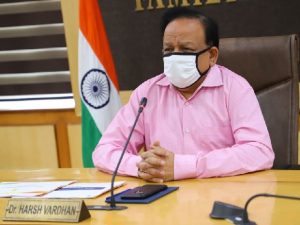
Dr. Harsh Vardhan, Union Minister for Health and Family Welfare has been appointed Chairman of the Stop TB Partnership Board.The Union Health Minister will serve a three-year term, commencing July 2021, as the Chair of the Board of Stop TB Partnership.
- Established in the year 2000, the ‘Stop TB Partnership’ is mandated to eliminate Tuberculosis as a public health problem.
- The organization was conceived following the meeting of the First Session of the Ad Hoc Committee on the Tuberculosis Epidemic held in London in March 1998.
- In its inaugural year itself, the Stop TB Partnership through the Amsterdam Declaration gave a call for collaborative action from ministerial delegations from 20 countries that bear the highest burden of TB.
- It has 1500 partner organizations which include international, non-governmental, and governmental organizations and patient groups.
- The Secretariat is based in Geneva, Switzerland.
- Harsh Vardhan addressing the 33rd Board Meeting of Stop TB, November 2020, India has committed to eliminating TB in the country by 2025, five years ahead of the global deadline of 2030.




